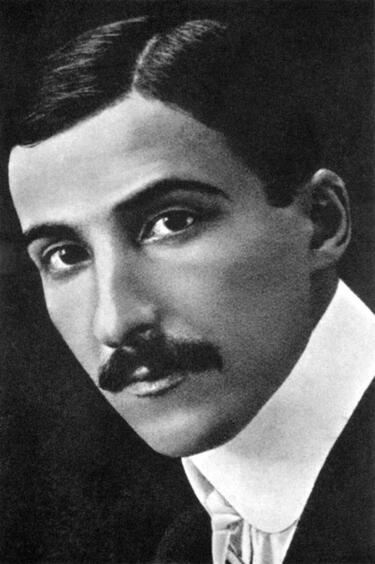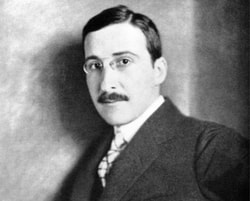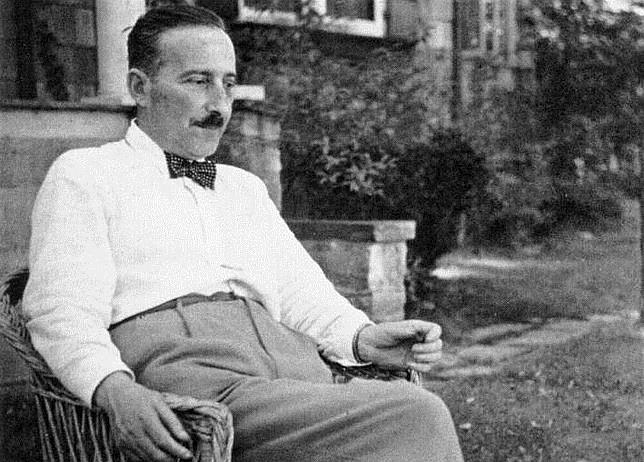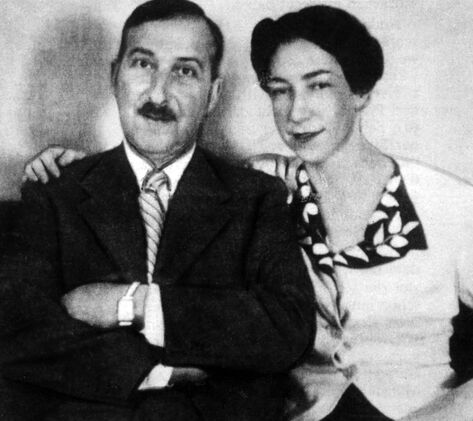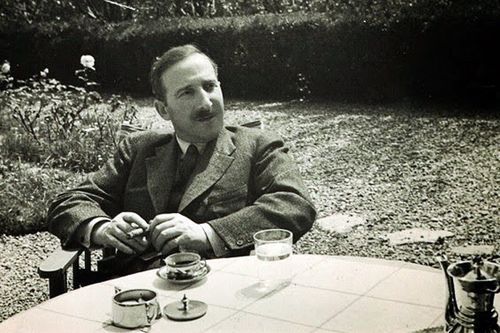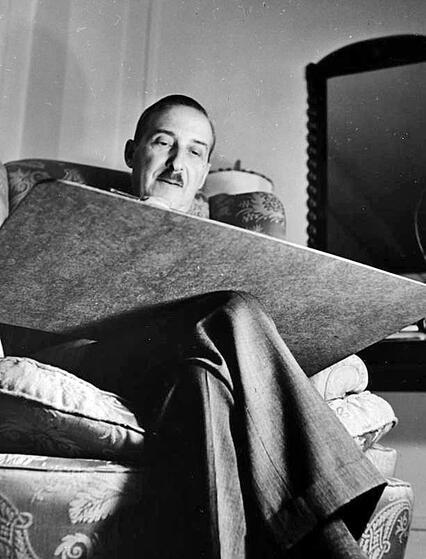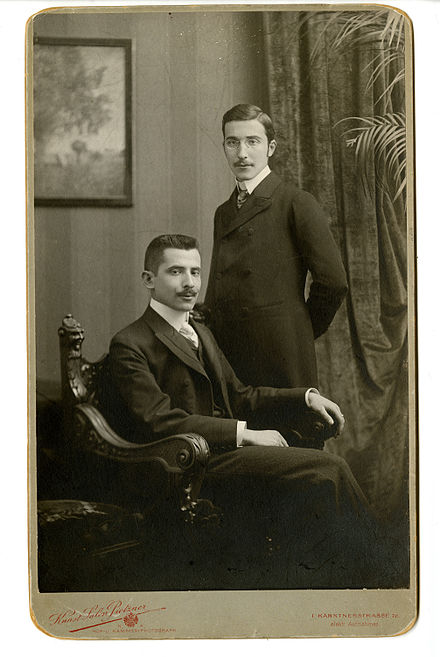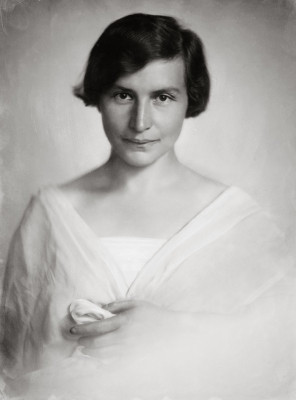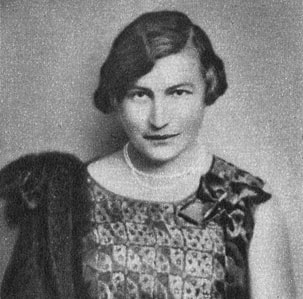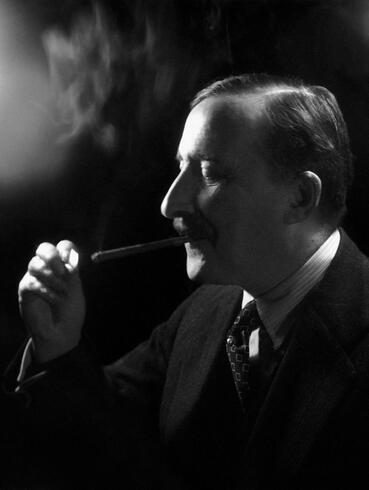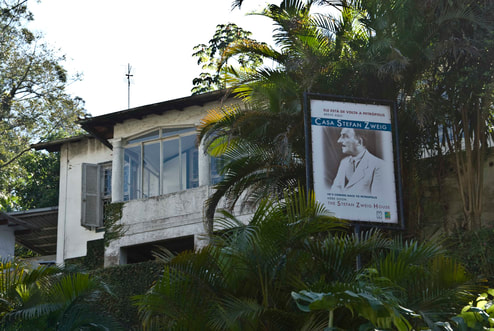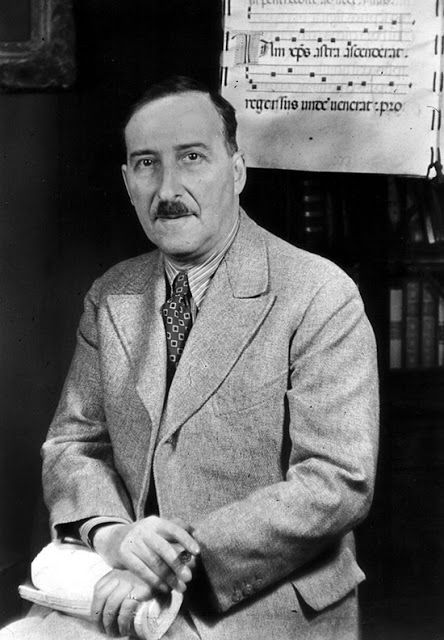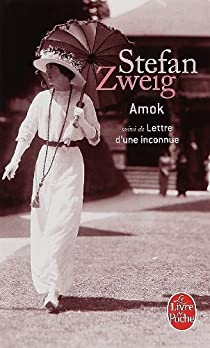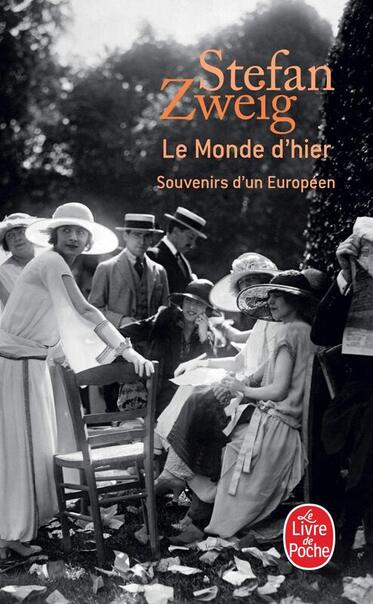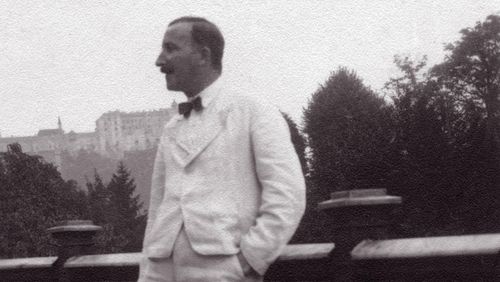|
Stefan Zweig (28 November 1881 – 22 February 1942) was an Austrian novelist, playwright, journalist and biographer. At the height of his literary career, in the 1920s and 1930s, he was one of the most widely translated and most popular writers in the world. Zweig was raised in Vienna, Austria-Hungary. He wrote historical studies of famous literary figures, such as Honoré de Balzac, Charles Dickens, and Fyodor Dostoevsky in Drei Meister (1920; Three Masters), and decisive historical events in Sternstunden der Menschheit (1928; published in English in 1940 as The Tide of Fortune: Twelve Historical Miniatures). He wrote biographies of Joseph Fouché (1929), Mary Stuart (1935) and Marie Antoinette (Marie Antoinette: The Portrait of an Average Woman, 1932), among others. Zweig's best-known fiction includes Letter from an Unknown Woman (1922), Amok (1922), Fear (1925), Confusion of Feelings (1927), Twenty-Four Hours in the Life of a Woman (1927), the psychological novel Ungeduld des Herzens (Beware of Pity, 1939), and The Royal Game (1941). In 1934, as a result of the Nazi Party's rise in Germany, Stefan Zweig emigrated to England and then, in 1940, moved briefly to New York and then to Brazil, where he settled. In his final years, he would declare himself in love with the country, writing about it in the book Brazil, Land of the Future. Nonetheless, as the years passed Zweig became increasingly disillusioned and despairing at the future of Europe, and he and his wife Lotte were found dead of a barbiturate overdose in their house in Petrópolis on 23 February 1942; they had died the previous day. His work has been the basis for several film adaptations. Zweig's memoir, Die Welt von Gestern (The World of Yesterday, 1942), is noted for its description of life during the waning years of the Austro-Hungarian Empire under Franz Joseph I and has been called the most famous book on the Habsburg Empire. “The world of my own language sank and was lost to me.....and my spiritual homeland Europe destroyed itself.” BiographyStefan Zweig was born in Vienna, the son of a wealthy Jewish textile manufacturer, and a daughter of a Jewish banking family. He was related to the Czech writer Egon Hostovský, who described him as "a very distant relative"; some sources describe them as cousins. Zweig studied philosophy at the University of Vienna and in 1904 earned a doctoral degree with a thesis on "The Philosophy of Hippolyte Taine". Religion did not play a central role in his education. "My mother and father were Jewish only through accident of birth", Zweig said later in an interview. Yet he did not renounce his Jewish faith and wrote repeatedly on Jews and Jewish themes, as in his story Buchmendel. Zweig had a warm relationship with Theodor Herzl, the founder of Zionism, whom he met when Herzl was still literary editor of the Neue Freie Presse, then Vienna's main newspaper; Herzl accepted for publication some of Zweig's early essays. Zweig, a committed cosmopolitan, believed in internationalism and in Europeanism, as The World of Yesterday, his autobiography, makes clear: "I was sure in my heart from the first of my identity as a citizen of the world." Zweig served in the Archives of the Ministry of War and adopted a pacifist stance like his friend Romain Rolland, recipient of the Nobel Prize in Literature 1915. Zweig married Friderike Maria von Winternitz in 1920; they divorced in 1938. As Friderike Zweig she published a book on her former husband after his death as well as a picture book on Zweig. In the late summer of 1939, Zweig married his secretary Elisabet Charlotte "Lotte" Altmann in Bath, England. As a Jew, Zweig's high profile did not shield him from the threat of prosecution. In 1934, following Hitler's rise to power in Germany, Zweig left Austria for England, living first in London, then from 1939 in Bath. Because of the swift advance of Hitler's troops westwards, and the threat of arrest or worse – as part of the preparations for Operation Seelöwe a list of persons to be detained immediately after conquest of the British Isles, the so-called Black Book, had been assembled and Zweig was on page 231, with his London address fully mentioned – Zweig and his second wife crossed the Atlantic to the United States, settling in 1940 in New York City; they lived for two months as guests of Yale University in New Haven, Connecticut, then they rented a house in Ossining, New York. On 22 August 1940, they moved again to Petrópolis, a German-colonized mountain town 68 kilometres north of Rio de Janeiro. Zweig, feeling increasingly depressed about the situation in Europe and the future for humanity, wrote in a letter to author Jules Romains, "My inner crisis consists in that I am not able to identify myself with the me of passport, the self of exile". On 23 February 1942, the Zweigs were found dead of a barbiturate overdose in their house in the city of Petrópolis, holding hands. He had been despairing at the future of Europe and its culture. "I think it better to conclude in good time and in erect bearing a life in which intellectual labour meant the purest joy and personal freedom the highest good on Earth", he wrote. The Zweigs' house in Brazil was later turned into a cultural centre and is now known as Casa Stefan Zweig. Zweig was a prominent writer in the 1920s and 1930s, befriending Arthur Schnitzler and Sigmund Freud. He was extremely popular in the United States, South America and Europe, and remains so in continental Europe; however, he was largely ignored by the British public. His fame in America had diminished until the 1990s, when there began an effort on the part of several publishers (notably Pushkin Press, Hesperus Press, and The New York Review of Books) to get Zweig back into print in English. Plunkett Lake Press has reissued electronic versions of his non-fiction works. Since that time there has been a marked resurgence and a number of Zweig's books are back in print. Critical opinion of his oeuvre is strongly divided between those who praise his humanism, simplicity and effective style, and those who criticize his literary style as poor, lightweight and superficial. Zweig is best known for his novellas (notably The Royal Game, Amok, and Letter from an Unknown Woman – which was filmed in 1948 by Max Ophüls), novels (Beware of Pity, Confusion of Feelings, and the posthumously published The Post Office Girl) and biographies (notably of Erasmus of Rotterdam, Ferdinand Magellan, and Mary, Queen of Scots, and also the posthumously published one on Balzac). At one time his works were published without his consent in English under the pseudonym "Stephen Branch" (a translation of his real name) when anti-German sentiment was running high. His 1932 biography of Queen Marie Antoinette was adapted by Metro-Goldwyn-Mayer as a 1938 film starring Norma Shearer. Zweig's memoir, The World of Yesterday, was completed in 1942 one day before he committed suicide. It has been widely discussed as a record of "what it meant to be alive between 1881 and 1942" in central Europe; the book has attracted both critical praise and hostile dismissal. Zweig acknowledged his debt to psychoanalysis. In a letter dated 8 September 1926, he wrote to Freud, "Psychology is the great business of my life". He went on explaining that Freud had considerable influence on a number of writers such as Marcel Proust, D.H. Lawrence and James Joyce giving them a lesson in "courage" and helping them overcome their inhibitions. "Thanks to you, we see many things. – Thanks to you we say many things which otherwise we would not have seen nor said." Autobiography, in particular, had become "more clear-sighted and audacious". Zweig enjoyed a close association with Richard Strauss, and provided the libretto for Die schweigsame Frau (The Silent Woman). Strauss famously defied the Nazi regime by refusing to sanction the removal of Zweig's name from the programme for the work's première on 24 June 1935 in Dresden. Zweig later collaborated with Joseph Gregor, to provide Strauss with the libretto for one other opera, Daphne, in 1937. At least one other work by Zweig received a musical setting: the pianist and composer Henry Jolles, who like Zweig had fled to Brazil to escape the Nazis, composed a song, "Último poema de Stefan Zweig", based on "Letztes Gedicht", which Zweig wrote on the occasion of his 60th birthday in November 1941. During his stay in Brazil, Zweig wrote Brasilien, Ein Land der Zukunft (Brazil, A Land of the Future) which consisted in a collection of essays on the history and culture of his newly adopted country. Zweig was a passionate collector of manuscripts. There are important Zweig collections at the British Library, at the State University of New York at Fredonia and at the National Library of Israel. The British Library's Stefan Zweig Collection was donated to the library by his heirs in May 1986. It specialises in autograph music manuscripts, including works by Bach, Haydn, Wagner, and Mahler. It has been described as "one of the world's greatest collections of autograph manuscripts". One particularly precious item is Mozart's "Verzeichnüß aller meiner Werke" – that is, the composer's own handwritten thematic catalogue of his works. BibliographyFiction
(*The dates mentioned below are the dates of first publication in German.) Biographies and historical texts
Adaptations
0 Comments
Leave a Reply. |
Categories
All
Archives
December 2023
|
